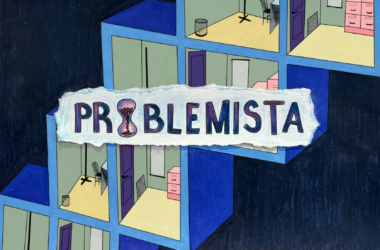When Alan Bradley set out to write his first detective novel he had no idea it would lead to the character of Flavia de Luce, or to a series about the young sleuth, in which The Weed that Strings the Hangman's Bag is the second novel.
"I was writing another detective novel that I thought I had plotted very carefully for story and characters, then Flavia just materialized in it," Bradley says. "She actually hijacked the book; it took a couple of years for me to realize that she was someone who needed her own book."
The first book in the series, The Sweetness at the Bottom of the Pie, became both a New York Times and Globe and Mail bestseller and also won numerous awards, including the Crime Writers' Association Debut Dagger Award. Bradley, for his part, says he never dreamed the book would be so successful.
"When I set out I was writing for myself. I was trying to write a consoling book that would be something I would love to run across some rainy afternoon in the library," he says. "You would just happen to pick up this book and it would have all of these bizarre, eccentric, curious things."
The book is indeed full of strange characters, settings, and situations. The story centres around the de Luce family, made up of Father and his three daughters – Ophelia, Daphne, and Flavia – who live in a rambling country house in England called Buckshaw.
The best part of the book is its main character, Flavia, the inspiration for the series. The 11-year-old girl has a "passion for poisons," and divides her time between the chemistry lab constructed in her rambling English countryside home by her late Uncle Tar, and solving mysteries that arise in the nearest town, Bishop's Lacey. The first book centered around Flavia's search to solve the murder of the dead body she found in Buckshaw's garden.
The Weed that Strings the Hangman's Bag is also a murder story. When Rupert Porson, a travelling puppeteer, dies mysteriously during a performance at the local church, Flavia is convinced that the audience has witnessed one thing: murder. As she sets out to find the killer and his motive, she begins to uncover connections between Rupert and many other strange-goings-on around town, including a secret marijuana grow-op run by a local farmer and the mysterious death a few years earlier of a boy Flavia's age.
What makes Flavia such an intriguing character, and such a good detective, is the way she is able to extract sensitive secrets from almost any adult. Bradley explained that this is due to the "invisibility" of 11-year-olds.
"She can go wherever she wants, she can overhear, she can pump people for information and they don't mind being very blunt about things because to them she's just a kid; she's going to forget about it in two minutes anyway," he says. "They have no idea what she's doing with the information. To me, the 11-year-old girl is absolutely the perfect detective. Of course she takes full advantage of the fact that no one has any real regard for her."
With Flavia, Bradley takes on a difficult task: writing a book for adults about a child protagonist. However, Flavia is so well-developed, and Bradley's writing is so strong, that he perfectly captures the mannerisms and character of a lonely, strange, curious young girl. In addition, despite its somewhat mature subject matter in some instances – particularly murder, suicide, and love affairs – it's not surprising that Bradley says he has heard from people of all ages who love the book.
"I'm keenly aware, and growing more aware by the day, that these books reach a wide audience because of their appeal. Flavia has different appeals to different age groups," he says. "I've heard from a girl of eight who loves Flavia and I've heard from a woman of eighty-five who loves Flavia. So it's created a new realization that wasn't there when I started the series."
In addition to the captivating characters, the setting of the book makes the story even more interesting. The story takes place in 1950s England, and Bradley effectively utilizes the hangovers of war. Dogger, the de Luce's live-in handyman, for example, often slips into a daze in which he thinks he is back on the battlefield, while Dieter, a local German field hand who arrived in England as a prisoner of war, still wears the red circle to designate this status somewhat proudly.
While Bradley has received numerous offers to develop the series into movies or a television show, he says he has no interest, at least until he is done writing the six book series.
"I don't want other people touching Flavia while I'm still working on the series. It would be very unnerving to know that somebody somewhere in another place is putting Flavia through her paces, which I probably would not approve of. So for the moment she's going to stay in the books."








